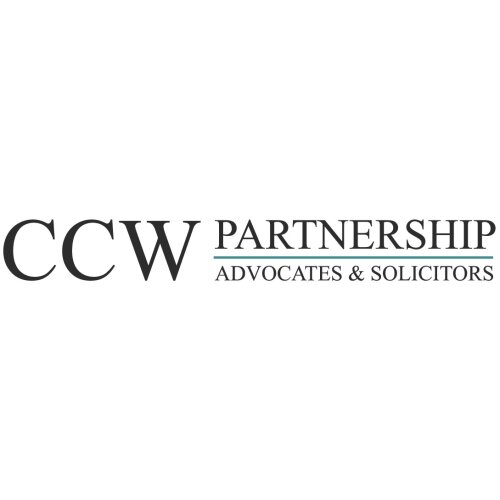Best Inheritance Law Lawyers in Bandar Seri Begawan
Share your needs with us, get contacted by law firms.
Free. Takes 2 min.
List of the best lawyers in Bandar Seri Begawan, Brunei
1. About Inheritance Law in Bandar Seri Begawan, Brunei
Inheritance law in Brunei operates within a dual framework. For Muslim residents in Bandar Seri Begawan, it follows Islamic Sharia principles, particularly the fixed shares under Faraid. Non-Muslim residents generally rely on civil law and probate procedures to settle estates. In both streams, the goal is to determine rightful beneficiaries and distribute assets according to applicable rules.
In practice, wills and bequests are interpreted differently depending on religion. Muslims may use wasiyah (a one time bequest) to allocate up to one third of the estate to non-heirs, with the remainder distributed by Faraid shares. Non Muslims typically use civil probate processes to appoint executors and administer estates. Understanding which pathway applies is essential before taking formal steps.
According to Brunei's government framework, inheritance matters for Muslims are administered under Islamic family law, with civil probate processes available for non-Muslims. Official guidance emphasizes consulting qualified practitioners for jurisdiction specific rules.
Residents should note that inheritance procedures can involve court processes, document authentication, and potentially cross border considerations when beneficiaries or assets lie outside Brunei. Working with a qualified solicitor or legal counsel who understands both Shariah and civil principles helps prevent delays and disputes.
2. Why You May Need a Lawyer
Here are concrete, real world scenarios in Bandar Seri Begawan where you would benefit from legal counsel in inheritance matters.
- A Muslim parent wishes to prepare a will that aligns with Faraid rules while providing for a spouse and children. A solicitor ensures the will respects Wasiyah limits and is enactable by the Syariah Courts.
- A family owns property in Bandar Seri Begawan and siblings disagree on how shares should be allocated under Faraid. A lawyer helps with mediation and, if needed, court proceedings to resolve the dispute.
- A non-Muslim widow seeks probate for an estate that includes a Brunei property and bank accounts. An attorney guides the Administration of Estates process and appoints an executor properly.
- Assets located outside Brunei or heirs based abroad require cross border coordination. A legal counsel coordinates foreign probate recognition and asset transfers.
- An estate includes a business interest that needs orderly transfer and compliance with local regulatory requirements. A solicitor coordinates due diligence and succession planning.
- A will is challenged by an heir or a beneficiary. A lawyer evaluates validity, potential rescission grounds, and necessary court actions.
3. Local Laws Overview
Brunei uses specific statutes and enacted rules to govern inheritance matters. The law varies by whether the decedent was Muslim or non-Muslim, and by the type of asset involved. The key framework sections below provide a starting point for understanding typical rules in Bandar Seri Begawan.
- Islamic Family Law Enactment - Governs inheritance for Muslims, including fixed shares under Faraid and permissible testamentary arrangements. This framework is administered through the Syariah Court system.
- Administration of Estates Act - Civil probate provisions for non-Muslim estates, including appointment of executors and distribution of assets under civil law procedures.
- Wills and Bequests Provisions - Civil law provisions that regulate how testaments are drafted, limited to allowable bequests under applicable statutes and court rules.
Recent developments in Brunei's inheritance landscape emphasize formalizing Shariah family law applications and streamlining probate processes for civil estates. For precise, current texts, consult official Brunei sources and a qualified solicitor to identify which enactments apply to your situation.
For reference, Brunei’s government portals offer guidance on legal processes and official court procedures. See the government portal and judiciary sites for current, authoritative information.
Source guidance on Brunei inheritance and probate processes is published by Brunei's official government channels and judicial authorities. Brunei Government Portal
4. Frequently Asked Questions
What is Faraid and how does it affect Brunei inheritance?
Faraid defines fixed shares for heirs under Islamic law. It limits distributions to a predetermined set of relatives, with remaining assets potentially allocated via Wasiyah up to one third. Consult a solicitor to map a will within these rules.
How do I start probate for a Brunei estate?
Start by identifying whether the decedent was Muslim or non-Muslim. For Muslims, engage the Syariah Court process; for non-Muslims, initiate Civil Probate through the appropriate court channels. A lawyer helps with document gathering and filing.
What is Wasiyah and how much can I give?
Wasiyah is a testamentary bequest intended for non heirs. In Brunei, the limit is generally up to one third of the estate, unless all heirs consent to a larger bequest. A legal counsel can validate the terms.
Do I need a Brunei lawyer for inheritance matters?
Hiring a solicitor or attorney is usually advisable to ensure compliance with local rules. A Brunei lawyer can coordinate court submissions, asset transfers, and cross border issues if needed.
How long does Brunei probate typically take?
Timeline varies by case complexity and whether disputes arise. Simple civil probates can take several months, while contentious matters may extend beyond a year. A lawyer can provide a realistic timetable.
Is Brunei inheritance law different for Muslims and non Muslims?
Yes. Muslims follow Islamic Family Law and Faraid rules, while non Muslims rely on Civil Probate procedures. The steps and courts involved differ accordingly.
Can non-Muslims inherit under Brunei law?
Non Muslims can inherit under Civil Probate rules and administered estates. In mixed assets or joint property, professionals help determine applicable procedures.
Should I contest a will in Brunei?
Contesting a will requires grounds such as lack of capacity, undue influence, fraud, or non compliance with formalities. A lawyer can assess validity and representation needs.
Do I need to produce a death certificate and will for probate?
Yes. Probate typically requires death certificates, the original will if one exists, asset records, and beneficiary details. A solicitor helps compile and present these documents.
How much do Brunei inheritance lawyers charge?
Legal fees vary by case complexity and location. Typical charges include consultation fees, hourly rates, or a fixed retainer for probate work. Request a written fee estimate upfront.
Where can I get official Brunei inheritance guidance?
Official guidance is available from Brunei government portals and the Judiciary. Start with the government portal and involve a qualified practitioner for specifics.
What documents are needed to file an estate in Brunei?
Common documents include death certificates, original wills if present, identity documents for executors and beneficiaries, property records, and bank statement details. A lawyer helps assemble them correctly.
Do I need a will to distribute assets in Brunei?
Having a will helps direct possessions but may be limited by Shariah rules for Muslims. Wills should be drafted with professional advice to avoid clashes with Faraid shares.
Is there a difference between probate and administration of estates in Brunei?
Probate confirms the will and appoints executors for civil estates, while administration covers non probate transfers and distribution under civil law. For Muslims, Syariah court processes apply.
Can I handle estate matters online in Brunei?
Some processes may offer online support or e filings through government portals, but many steps require in person submissions. A lawyer can guide you through digital options if available.
5. Additional Resources
- Attorney General's Chambers Brunei - Provides official guidance on civil law, probate procedures, and registries. agc.gov.bn
- Judiciary of Brunei - Central source for court rules, probate petitions, and civil and Syariah court procedures. judiciary.gov.bn
- Brunei Government Portal - Official portal with links to law, forms, and public notices relevant to inheritance and estate matters. gov.bn
Consulting these authoritative sources helps identify the current rules and procedural steps. Always verify the latest text or amendments with a Brunei-licensed solicitor before filing documents.
Official Brunei sources provide the most accurate, up-to-date guidance on probate procedures and Shariah related inheritance matters. Brunei Government Portal - gov.bn
6. Next Steps
- Clarify religion and asset scope. Determine if the decedent was Muslim or non Muslim and list all assets in Bandar Seri Begawan. Timeline: 1-2 days.
- Gather critical documents. Collect death certificates, original wills, title deeds, bank statements, and ID documents for potential heirs. Timeline: 1-2 weeks.
- Identify the proper legal path. Decide whether Islamic family law or civil probate applies, and which court will handle the matter. Timeline: 1 week.
- Consult a Brunei-licensed solicitor. Request a written plan detailing steps, required documents, and expected costs. Timeline: 1 meeting + 1 week for plan.
- Prepare and file initial documents. Work with your solicitor to assemble affidavits, notices, and estate forms for submission. Timeline: 2-6 weeks depending on case.
- Engage in fundraising and inventory steps. If there are creditors or taxes, coordinate with your lawyer on notices and settlement options. Timeline: ongoing until final resolution.
- Monitor and respond to court actions. Stay in regular communication with your solicitor about hearings, orders, and deadlines. Timeline: as required by court schedule.
Lawzana helps you find the best lawyers and law firms in Bandar Seri Begawan through a curated and pre-screened list of qualified legal professionals. Our platform offers rankings and detailed profiles of attorneys and law firms, allowing you to compare based on practice areas, including Inheritance Law, experience, and client feedback.
Each profile includes a description of the firm's areas of practice, client reviews, team members and partners, year of establishment, spoken languages, office locations, contact information, social media presence, and any published articles or resources. Most firms on our platform speak English and are experienced in both local and international legal matters.
Get a quote from top-rated law firms in Bandar Seri Begawan, Brunei — quickly, securely, and without unnecessary hassle.
Disclaimer:
The information provided on this page is for general informational purposes only and does not constitute legal advice. While we strive to ensure the accuracy and relevance of the content, legal information may change over time, and interpretations of the law can vary. You should always consult with a qualified legal professional for advice specific to your situation.
We disclaim all liability for actions taken or not taken based on the content of this page. If you believe any information is incorrect or outdated, please contact us, and we will review and update it where appropriate.











